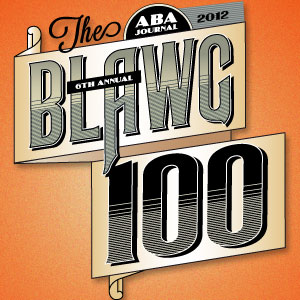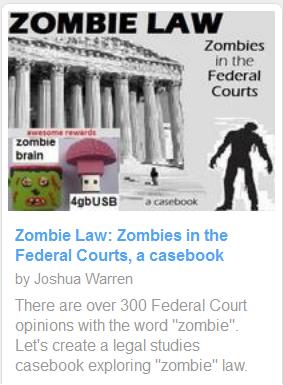Estate Tax Planning for the Undead
Lauren Davis at io9.com writes “What are the tax implications of the zombie apocalypse?” about a forthcoming law review article by law professor Adam Chodorow entitled “Death and Taxes and Zombies” available for download on SSRN and expected for upcoming publication in the Iowa Law Review.

Chodorow’s article is a humorous explanation of various aspects of tax law explored with the hypothetical of undead zombies:
The legal issues that will arise when the undead walk the earth are legion, and addressing them all is well beyond what could reasonably be accomplished in this brief essay. Indeed, a complete treatment of the tax issues alone would require several volumes. Accordingly, I focus here on two broad questions that illustrate the numerous problems that are likely to arise: the application of the estate and income taxes to the undead. Not all undead are created equal, and therefore, after addressing zombies below in Part I, I turn to consider vampires and ghosts in Part II.
This study highlights the flawed assumption that lies at the heart of our tax code, namely that death may not be permanent …,
This reminds me of the plot of Torchwood: Miracle Day – if no one dies anymore, but they still get injured and/or comatose and otherwise near-dead, that presents a substantial health administration crisis. This plot is well-explored. And is similar to academic efforts of other recent works that use the “zombie” hypothetical as a teaching tool to explore the domain (for example, CDC’s emergency preparedness, MSU’s social work, Drezner’s International Policy, Schlozman’s Zombie Autopsies and Zombie-Based Learning).
Chodorow argues that what has been overlooked so far by the zombie hypotheticians is the crisis it would create in the tax law. Chodorow also uses real life example to show that this zombie tax problem is not as absurd as it might seem. He cites the myth that Walt Disney had his brain frozen with the intent of coming back to life in the future and, more simply, presumed brain dead comatose patients who regain consciousness (Cf. a Wake ceremony). As medical technology changes death, must estate tax law respond? Will we need categories of kinds of undead? Addressing both Dracula and Twilight, Chadorow points out that vampire would need to be treated differently than zombies because of their different afterlife needs:
Application of the income tax to vampires also has far more significance than it does for zombies. Because they retain all their faculties, vampires can continue to earn income and acquire or dispose of property after they become vampires. Indeed, they are likely to work the night shift, which usually pays more than day jobs, so their income could be significant
Chodorow concludes with some strong words toward Congress, referring to their “partisan rigor mortis”.
Overall his paper is cute and worthy of a quick read. The legal topics about definitions of death are somewhat under explored and I can’t say I agree that Congress needs to urgently legislate regarding zombies and vampire. Still, Chodorow makes a fascinating thought experiment to question the underlying assumption of death that structures the tax code.
Perhaps giving whole new meaning to the Benjamin Franklin quote: “nothing can be said to be certain, except death and taxes” …and zombies?







Trackbacks & Pingbacks